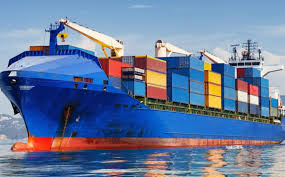
Maritime Transport & Business Management
National Diploma Courses
|
2 years
|
English
|
OnsiteDescription
The Maritime Transport & Business Management course is designed to equip students with the skills and knowledge needed for effective management and operations within the maritime industry. This course combines maritime transport fundamentals with business management principles, preparing graduates for roles in shipping companies, port authorities, and logistics firms.
Course Curriculum
- Introduction to Maritime Transport
- Overview of the maritime industry and global shipping.
- Structure and operations of shipping companies and port facilities.
- Key maritime trade routes and economic significance.
- Maritime Logistics and Supply Chain Management
- Principles of logistics and supply chain management.
- Role of maritime transport in global supply chains.
- Cargo handling, warehousing, and distribution.
- Ship Management and Operations
- Basics of ship operations and management.
- Maintenance and repair of ships.
- Fleet management and operational efficiency.
- Maritime Law and Regulations
- Overview of international maritime laws and conventions (SOLAS, MARPOL).
- Regulatory frameworks and compliance requirements.
- Understanding contracts, insurance, and liability.
- Port and Terminal Management
- Functions and operations of ports and terminals.
- Port infrastructure, cargo handling equipment, and logistics.
- Strategies for optimizing port operations and efficiency.
- Maritime Business and Finance
- Financial management and accounting in the maritime sector.
- Business strategies and economic principles in shipping.
- Investment, risk management, and financial planning.
- Maritime Safety and Environmental Management
- Safety management systems and practices in maritime transport.
- Environmental regulations and sustainability practices.
- Risk assessment and emergency response planning.
- Marketing and Strategic Management
- Marketing principles and strategies for maritime businesses.
- Strategic planning and decision-making in the maritime industry.
- Competitive analysis and market trends.
- Human Resource Management
- HR practices and management in the maritime sector.
- Recruitment, training, and development of maritime personnel.
- Employee relations and organizational behavior.
- Technology and Innovation in Maritime Transport
- Impact of technology on maritime operations and management.
- Innovations in shipping, logistics, and port operations.
- Use of data analytics and digital tools in maritime business.
Course Duration and Certification
- Duration: Typically 2 to 4 years, depending on the institution and program structure.
- Certification: Upon successful completion, students receive a diploma or degree in Maritime Transport & Business Management.
Importance
- Industry Preparation: Equips graduates with the skills needed for management and operational roles in the maritime industry.
- Business Skills: Combines maritime knowledge with business management skills, enhancing career prospects.
- Career Opportunities: Prepares graduates for roles in shipping companies, port authorities, logistics firms, and maritime consultancy.
The Maritime Transport & Business Management course provides a solid foundation in both maritime operations and business management, preparing students for a successful career in the global maritime industry.
- Category National Diploma Courses
- Language English
- Duration 2 years
- Level Beginner
- Assessments Yes
Reviews
4.5
Limited Time Offer